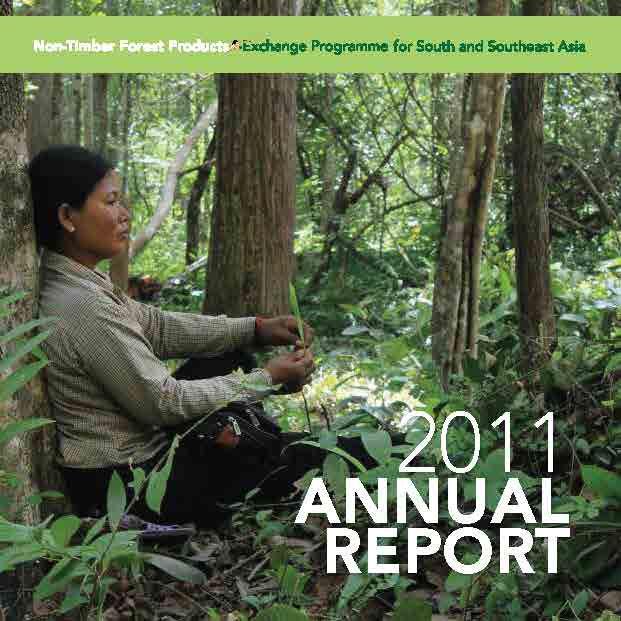Institutionally, NTFP-EP embarked on its plans of decentralization with the formation of a diversified board of Indonesian NTFP practitioners to set the organic, homegrown direction of NTFP development in the country in the coming years. The Sarawak, Malaysia program is also assisting in the formation of the Sarawak NTFP advisory committee, due to be established in 2012. In terms of programs, NTFP-EP expanded its community enterprise development work to 163 enterprises in 600 villages in catering to 7,400 individuals. Especially important to mention is the growth of the Nature Wild brand and marketing arm in Cambodia with an offering of new products and increased sales of over 51% since 2010. Similarly, in Indonesia, partners joined NTFP-EP to open the Borneo Chic shop in the arts center of Jakarta.
Eco-certification, an NTFP specific scheme for certification, also gained ground through a workshop in India with initial activities also occurring in Indonesia on products such as honey and rattan. With limited funds to expand its conservation program, in 2011 NTFP-EP was able to plant over 74,000 seedlings of NTFP species for subsistence and commercial purposes. Participatory Resource Monitoring (PRM) was also implemented in the Philippines after harvest cycles of certain NTFPs but the slow permitting processes affects the involvement of community members. Reflection on the past three (3) years in NTFP-EP’s history led to the realization that more focus on conservation and food security themes is needed.
Thus, NTFP-EP also strengthened its commitment to hunter-gatherer groups by supporting Penan festivals celebrating their symbiotic relationship with nature. This year, NTFP-EP also assisted in the creation of the Penan Youth Association which already assists in many community development activities. In similar light, NTFP-EP assisted the first Aeta Forest Foods Festival. NTFP-EP has also been successful in promoting tenurial security of forest communities through increased literacy on the Forest Rights Act (FRA) in India and promotion of indigenous peoples rights in other parts of Asia. Network wide, NTFP-EP also facilitated regional exchanges on advocacy on indigenous people’s economic, socio-cultural rights supported by the International Labour Organization (ILO).
With regards to the staple product supported by NTFP-EP, forest honey, this year showed bumper harvests for Palawan, Philippines and India which lead to increased sales for communities. Extreme weather changes are affecting honey flow elsewhere, however. This year, forest honey advocates from six (6) countries met to discuss concerns regarding forest honey, nutrition and health with medical professionals. The Madhu Duniya Asian Forest Honey Conference also saw the exchange of knowledge and experiences of over 70 communities and NGO support groups from seven (7) countries and witnessed the signing of an agreement for increased access of honey gatherers in the locale.
NTFP-EP also played an expanded role with the ASEAN Social Forestry Network (ASFN) where it was able to organize a civil society organizations (CSO) open space in an intergovernmental panel on social forestry. Efforts at promoting community and conservation based REDD+ are also extending to support such models in four (4) countries in Southeast Asia.




